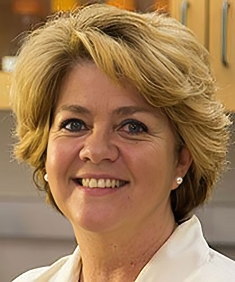
Infants born at home have more diverse bacteria in their guts and feces, which may affect their developing immunity and metabolism, according to a study in Scientific Reports.
Understanding why babies born at home have more diverse microbiota for at least a month after birth, compared with those born in a hospital, could help prevent disease later in life. The human microbiome consists of trillions of bacteria, fungi and viruses that live on and in our bodies, many of which benefit our health and prevent chronic conditions such as obesity, diabetes, asthma and gut inflammatory disorders. Microbes transmitted from mother to baby help prevent chronic disease.
"The reasons for the differences between infants born at home versus in hospitals are not known, but we speculate that common hospital interventions like early infant bathing and antibiotic eye prophylaxis or environmental factors – like the aseptic environment of the hospital – may be involved," said senior author Maria Gloria Dominguez-Bello, a professor in Rutgers University—New Brunswick's Department of Biochemistry and Microbiology and Department of Anthropology.